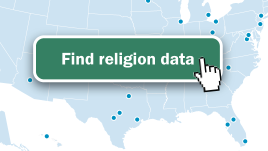
Numbers, Facts and Trends Shaping Your World

Teens, Social Media and Mental Health
Most teens credit social media with feeling more connected to friends. Still, roughly one-in-five say social media sites hurt their mental health, and a growing share think they harm people their age.
- Learn more: Parents’ and teens’ concerns about mental health
Latest Publications
Most Popular
Politics & Policy

How Americans view Israel and the Israel-Hamas war at the start of Trump’s second term
A slight majority of Americans (54%) say the Israel-Hamas war is either very or somewhat important to them personally.
Features
Economy & Work

What we know about veterans who work for the federal government
As of September 2024, more than 700,000 veterans worked in various federal departments and agencies.

Blue-collar workers are less satisfied at work, less attached to their jobs than other U.S. workers
Among blue-collar workers, 43% say they feel extremely or very satisfied with their jobs; by comparison, 53% of other workers express this level of satisfaction.

U.S. Workers Are More Worried Than Hopeful About Future AI Use in the Workplace
American workers have mixed feelings about how AI technologies, like ChatGPT, will affect jobs in the future.

Republicans think economy will improve over the next year, Democrats expect it to get worse
About three-quarters of Republicans (73%) expect the economy to be better a year into President Donald Trump’s second term, while 64% of Democrats say it’ll be worse.
Religion

Decline of Christianity in the U.S. Has Slowed, May Have Leveled Off
After years of decline, the U.S. Christian share now shows signs of leveling off. The new Religious Landscape Study explores trends in identity, beliefs and practices.

Pope Francis and public opinion: Key findings from our surveys
At least 80% of Catholics have expressed a favorable opinion of Pope Francis in 10 of the 15 U.S. surveys in which we have asked about the pope since 2013.

Around the World, Many People Are Leaving Their Childhood Religions
In many places surveyed, 20% or more of all adults have left their childhood religious group. Christianity and Buddhism have had especially large losses.

10 facts about U.S. Catholics
Catholics are one of the largest religious groups in the United States, outnumbering any single Protestant denomination.
Social Media

Fewer Americans now support TikTok ban, see the platform as a national security threat than in spring 2023
The share of Americans who perceive TikTok as a national security threat has also dipped – from 59% in 2023 to 49% now.

5 facts about Americans and YouTube
Here are five key findings about YouTube from our research to mark its 20th anniversary.

No consensus on who comes to mind when Americans are asked to name a news influencer
In an open-ended question, we asked U.S. adults who say they regularly get news from news influencers to name the first one who comes to mind for them.
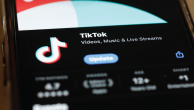
A closer look at Americans’ experiences with news on TikTok
Many TikTok accounts mix in news with a variety of other topics, from celebrity gossip to jokes and memes.

What we know about TikTok content creators
On TikTok, Americans often follow people who have a strong social media presence. These creator accounts make up about half of all accounts that U.S. users follow.
Our Methods
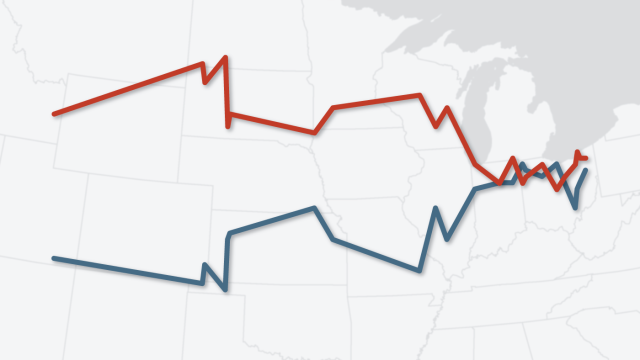
U.S. Surveys
Pew Research Center has deep roots in U.S. public opinion research. Launched as a project focused primarily on U.S. policy and politics in the early 1990s, the Center has grown over time to study a wide range of topics vital to explaining America to itself and to the world.
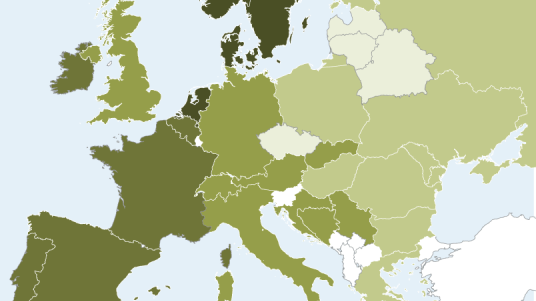
International Surveys
Pew Research Center regularly conducts public opinion surveys in countries outside the United States as part of its ongoing exploration of attitudes, values and behaviors around the globe.
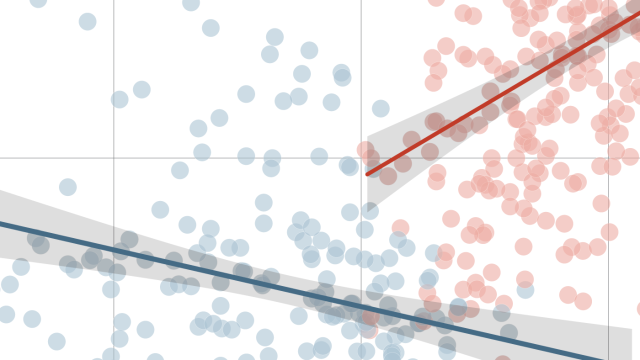
Data Science
Pew Research Center’s Data Labs uses computational methods to complement and expand on the Center’s existing research agenda.
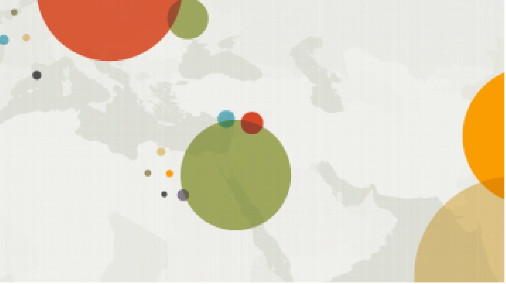
Demographic Research
Pew Research Center tracks social, demographic and economic trends, both domestically and internationally.

Decoded
Pew Research Center tracks social, demographic and economic trends, both domestically and internationally.
Our Experts
“A record 23 million Asian Americans trace their roots to more than 20 countries … and the U.S. Asian population is projected to reach 46 million by 2060.”

Neil G. Ruiz,
Head of New Research Initiatives
Methods 101 Videos

Methods 101: Random Sampling
The first video in Pew Research Center’s Methods 101 series helps explain random sampling – a concept that lies at the heart of all probability-based survey research – and why it’s important.
Signature Reports

Decline of Christianity in the U.S. Has Slowed, May Have Leveled Off
America’s News Influencers
Race and LGBTQ Issues in K-12 Schools
Representative Democracy Remains a Popular Ideal, but People Around the World Are Critical of How It’s Working
Americans’ Dismal Views of the Nation’s Politics
Measuring Religion in China
Editor’s Pick

5 Years Later: America Looks Back at the Impact of COVID-19
How Americans view Elon Musk and Mark Zuckerberg
Biden granted more acts of clemency than any prior president
Faith on the Hill
Many Americans perceive a rise in dangerous driving; 78% see cellphone distraction as major problem
7 facts about Germany’s AfD party
International Affairs













